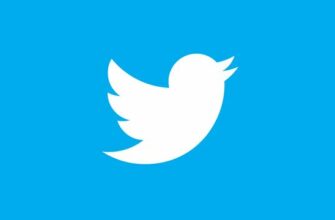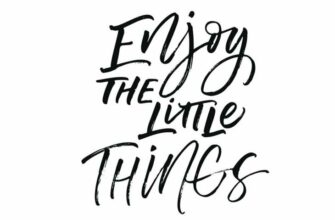Though they are very similar to in-person job interviews, phone interviews possess a unique set of difficulties and challenges. Generally, the phone interview is the first extended conversation with a prospective employer. Many people rely heavily on eye contact, facial movements, and body language to express themselves, and these actions are lost in phone interviews. It can be difficult to make an impression with only speech, but by preparing properly, you can set yourself up for success. One of the best ways to prepare is to plan ahead and think of answers to questions the interviewer may ask.
Background Questions
Many interviews, phone or in-person, begin with questions about past job experiences, which usually include information regarding previous responsibilities. Primarily, having the information on hand with former employers’ phone numbers, addresses, and supervisor names demonstrates preparedness. Interviewers will usually find it unprofessional if a job applicant spends several minutes trying to find the necessary information. If the interviewer asks about experience or responsibilities, consider not only credentials and training but soft skills as well. Broad examples of soft skills for jobs are communication, creativity, work ethic, and adaptability.
Questions About the Job
Following questions about previous employment, the interviewer may ask questions about the job for which you are interviewing. A common question is some variation of, “What about this job is appealing or interesting to you?” To answer this question, you need to have a clear understanding of the position and the qualifications it requires. Applicants can bring up relevant previous experience and then describe a facet of the job that is interesting and new to them. As an example, a programmer may describe the process of learning different coding languages and how they are excited to learn new skills as well.
Self Description
One part of job interviews that catches some people off-guard occurs when the interviewer asks the applicant to describe themselves. This is a complex and fairly tricky question. The interviewer probably isn’t looking for a complete answer. In fact, some interviewers care less about the answer itself and more about the method the applicant uses to answer it. A subtle way to make sure your answer stays relevant to the job for which you’re interviewing is to describe a hobby that led to the development of skills that may be helpful in the position. This shows interest beyond the workplace while still keeping the interview rooted and professional.
Greatest Weakness
A staple of the job interview process is asking the applicant to describe their greatest strengths and weakness. Stating a weakness such as laziness is a bad idea. Instead, applicants should attempt to use weakness to describe a strength. For example, an applicant may say they are overly attentive, which causes them to be overly careful. While some people may view this as a weakness, it is also a strength. Alternatively, one may describe overcoming a previous weakness or working toward defeating a current weakness.
Greatest Strength
Job seekers who are describing their greatest strengths must tread carefully. It can be easy for a person to come across as overconfident or boastful. One of the best ways for applicants to describe their greatest strength is to work in one of the qualifications that the business requires for the position. An applicant for a blog-writing position may describe their work history as a writer, their strong knowledge of grammar, or their ability to write in different styles.
Work Environment
Throughout the phone interview, the interviewer is attempting to determine whether or not the applicant is a suitable employee for the workplace. They don’t base this decision just on qualifications or experience, but they also consider the employee’s expectations. An interviewer may ask an applicant what they expect from a work environment. Without prior research, this can be a difficult question for job seekers to answer. The best option is typically for the applicant to remain neutral and describe how flexible and adaptable they are. It is often ideal to include a short anecdote to provide evidence.
Evaluate Success
To discover a potential employee’s work ethic, an interviewer may ask them to describe how they evaluate success. The main goal is to prove your motivation, drive, and enthusiasm. Without the body language of an in-person interview, these answers must be direct and to the point or they may feel emotionless or empty. An applicant’s answer should be relevant to the job while including traits of their personality. Some jobs may involve group and team projects. For these jobs, it can help to mention that personal success is a direct result of the team’s success.
Abilities
Some employers will reference your resume and application during phone interviews. They may ask questions about specific skills or qualifications. These questions may be indirect to disguise what the interviewer is asking. As an example, an interviewer may see that an applicant has listed problem-solving as one of their skills. They may ask the applicant to find a solution to a hypothetical issue. The interviewer is likely not looking for an actual solution to the hypothetical scenario but is attempting to discover the thought process behind a potential employee’s approach to such problems. Answering this question requires quick thinking; describing a similar issue you overcame previously is a good way to showcase both your ability to think on your feet and your proven, practical skill.
Difficult Questions
Some questions that employers ask are deliberately difficult for job seekers to answer. An interviewer may ask the applicant about a previous negative experience with a supervisor and what the outcome of such an experience was. Generally, it is best for applicants to avoid negative or defamatory remarks. Instead, it can be effective to describe a minor misinterpretation of a specific incident and then describe its resolution. Alternatively, a job seeker could take responsibility for the experience and then describe how it allowed them to grow as a person and employee.
Reversal
One of the final steps in many interviews is to have the applicant ask the interviewer questions. In some cases, the interviewer is doing this as a courtesy, while some employers are looking to see what the applicant finds interesting or confusing about the job. One way to show interest is to refer to statements the interviewer made during the phone interview. This shows that the applicant was paying attention while also attempting to learn more about the position. Other excellent questions to ask include methods of job advancement, management styles, or if there is anything the applicant can clarify for the interviewer.

 Home
Home Health
Health Diet & Nutrition
Diet & Nutrition Living Well
Living Well More
More




















